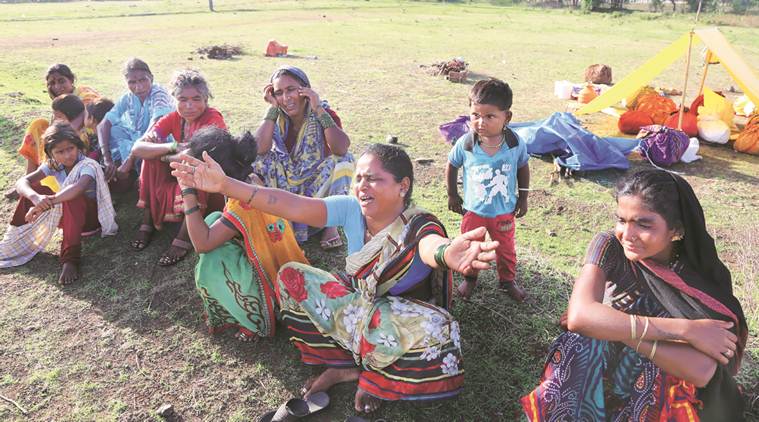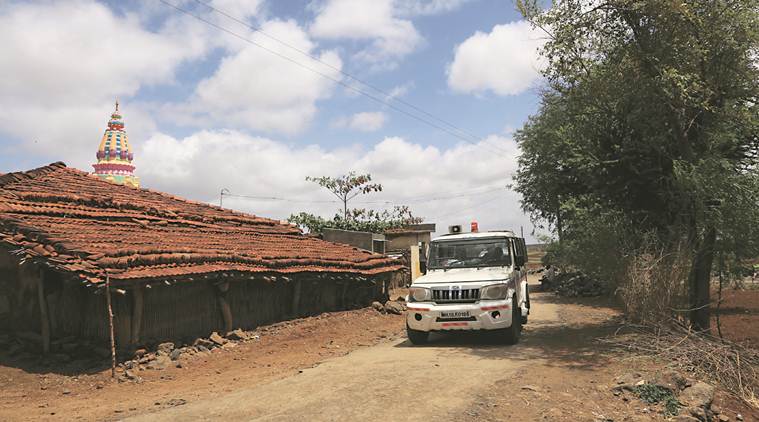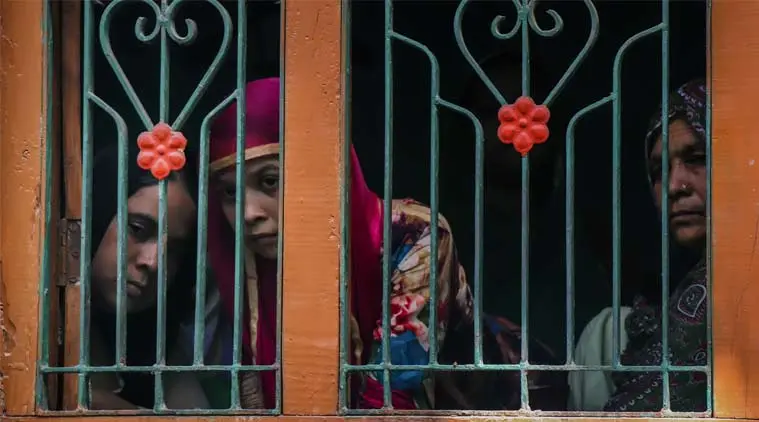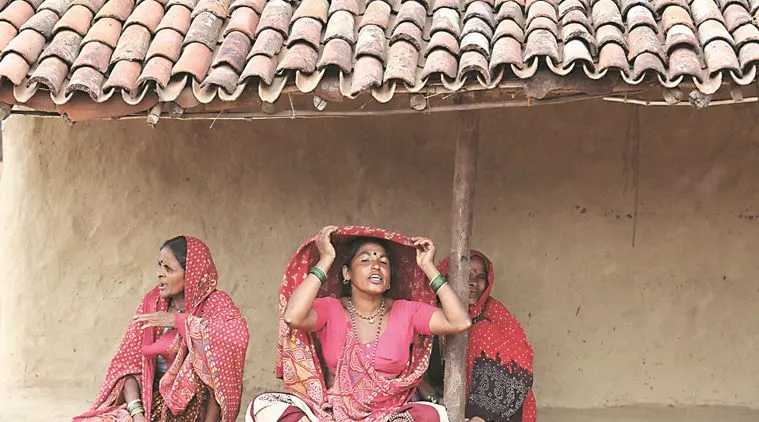 The widows of the victims who were lynched in Dhule by a mob who suspected them of being child-lifters. (Express Photo)
The widows of the victims who were lynched in Dhule by a mob who suspected them of being child-lifters. (Express Photo)
(Written by Rashmi Rajput in Dhule, Abhishek Saha in Guwahati, Sweety Kumari in Kolkata, Sreenivas Janyala in Hyderabad, Johnson T A in Bengaluru, Arun Janardhanan in Chennai, Prashant Pandey in Ranchi & Dipankar Ghose in Raipur)
A MIGRANT worker, three mentally challenged men, a patient undergoing treatment for depression, two members of a denotified tribe, a “colourfully dressed” visitor outside a dargah, five nomads.
Of the 20 people lynched in the last three months across the country by murderous mobs fuelled by rumours of child-lifters, 13 were “soft targets” from the margins of society, who are the “most vulnerable to such attacks”, an investigation by The Indian Express has revealed.
Police records accessed by The Indian Express of 27 lynchings from nine states over one year also show that in all these cases, there was no previous enmity involved. All the victims were strangers trapped in areas inflamed by rumours, mainly over social media, of child kidnappers on the prowl.
Unfortunately, all the victims happened to be at the wrong place at the wrong time, says Bipin Bihari, Additional Director General of Police (law and order), Maharashtra.
Speaking to The Indian Express, the ADGP says, “The fact that most the victims were from the marginalised sections suggests that there probably was no fear among the mob of the consequences. In all the cases reported in Maharashtra, the victims were strangers, especially tribals or nomads who failed to convince the mob or present their side of the story convincingly.”
 Murderous mob: At Rainpada village where five people were lynched. (Photo: Prashant Nadkar)
Murderous mob: At Rainpada village where five people were lynched. (Photo: Prashant Nadkar)
Harssh Poddar, SP Malegaon, whose team thwarted an attempted lynching on July 1, says, “these mobs don’t engage in any form of verification before resorting to violence. The victim’s appearance and language have a bearing in such situations — what they are wearing, their dialect.” On Friday, The Indian Express reported that no police station in any of these areas had reported a child-kidnapping in the months leading up to the killing.
In many of these cases, police records show, all it took was a random act to trigger the attack: In Tamil Nadu, a woman offered chocolates to children while asking for directions to a temple; in Tripura, a man who had covered his face due to the heat had stopped to talk to a girl; in Assam, two friends stopped in a village where “no one travels in a car through this area late in the evening”.
One lynching that best illustrates the terrifying frenzy that follows, is the killing of a 33-year-old autorickshaw driver in Telangana’s Nalgonda district, 80 km from Hyderabad. The trigger: A chat outside a toddy shop just after sunset.
 Murderous mob: Family members of Qasim in Saddikpur Tuesday. (Photo: Pulkit Rathi)
Murderous mob: Family members of Qasim in Saddikpur Tuesday. (Photo: Pulkit Rathi)
According to police records, N Balakrishna of Koremulla was leaving a toddy shop in Jiyapalli, 18 km away, when a group of local residents stopped him for a chat. The area was rife with rumours of child-kidnappings, and the conversation quickly heated up. In a flash, a mob of over 50 gathered, and started punching and kicking Balakrishna. When he fell unconscious, they put him in an autorickshaw and dumped him outside the village panchayat office.
Witness testimonies show that Balakrishna lay there until the sarpanch arrived around 7 pm. The sarpanch thought that the lynching victim, who was barely conscious, was drunk and had passed out. A few hours later, Balakrishna was dead — slumped over his elder brother’s back, on a motorcycle to the hospital.
“I still can’t believe that he was beaten so brutally. His left leg was fractured, and his stomach and private parts punctured. People there said the mob appeared possessed because of all the rumours on WhatsApp,’’ says N Narasimha, Balakrishna’s brother.
In West Bengal’s East Midnapore, it was a morning of hope for Sandip Chandra on June 23. His younger brother Sanjoy, a jobless B.Com graduate undergoing treatment for depression, had left on his cycle to meet a prospective employer.
“He didn’t return. The next morning, we came across a news item in the local paper with a photograph of someone who looked a lot like Sanjoy. We rushed to the police station and found his bicycle, and then his body. I can’t imagine what my brother must have gone through when the crowd started beating him. We got to know that he kept telling them he was not a child-lifter and was from a neighbouring village – but no one cared. They kept hitting him with iron rods and sticks. Then, they tied a rope around his neck to confirm he was dead. How can people be so inhuman?” says Sandip Chandra.
In Dhule, where five members of the Gosavi community were lynched in the latest such case on July 1, it is anger more than grief that is keeping the victims’ families going.
“Hand them (accused) to us, we will lynch them. Nothing less than their death will give us justice,” says Narmada Bhosale, widow of Dadarao Bhosale, one of the five.
“Incidents of mob lynchings are happening across the country and it seems two things are primarily responsible: superstition and intolerance. I appeal to the Prime Minister that the entire government machinery — in collaboration with state governments and NGOs — should work jointly to control this dangerous situation,” says Gopal Chandra Das in Guwahati.
 Murderous mob: In Rainpada village, tribal women were picking up their children from school after the midday meal fearing a group of ‘child-lifters’, according to a school teacher. (Express Photo/Prashant Nadkar)
Murderous mob: In Rainpada village, tribal women were picking up their children from school after the midday meal fearing a group of ‘child-lifters’, according to a school teacher. (Express Photo/Prashant Nadkar)
Gopal Chandra’s son Nilotpal Das and his friend Abhijit Nath were lynched at a village in Karbi Anglong, where they had stopped late on June 8 while on a trip together in a black SUV.
At that time, one of Nath’s friends had dialled his number. The call was answered by a screaming voice: “We have killed him. You can watch in the news tomorrow.”